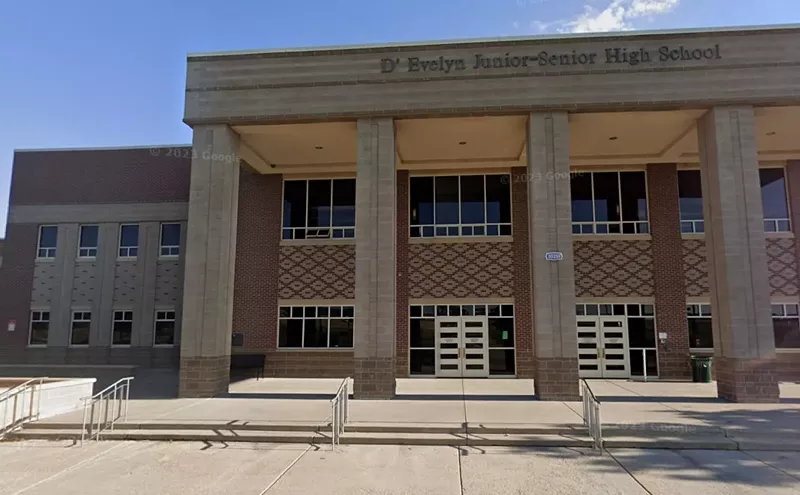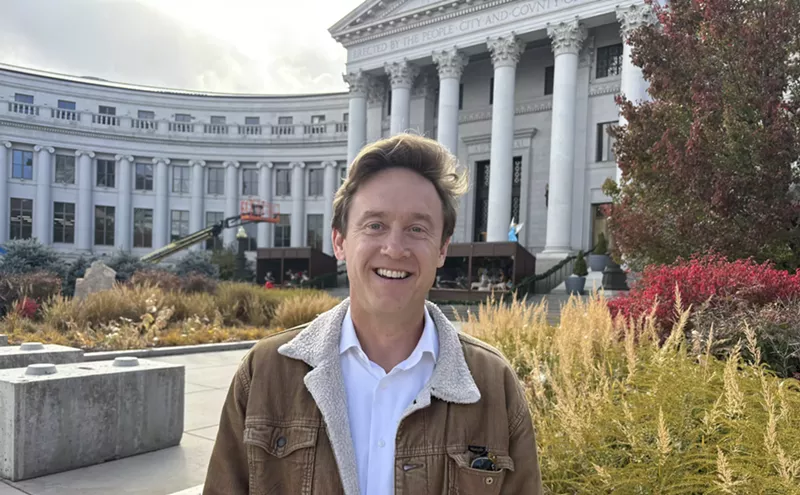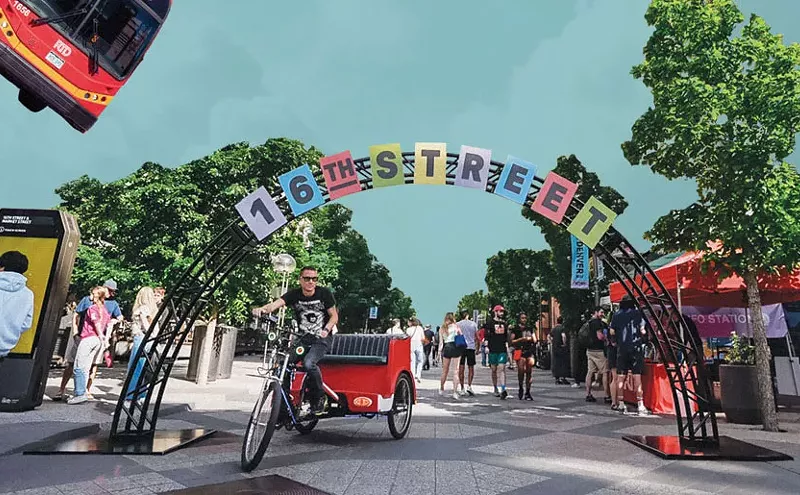One police officer interviewed for the study said johns were typically described as someone with "a wife, two kids, white picket fence and two dogs in the yard."
The study analyzed 2,072 arrests made by the Denver police between 2006 and 2011, in addition to 735 cases filed in Denver City Court and 121 cases filed in Denver County Court in 2009 and 2010. Funded by the Women's Foundation of Colorado and conducted in the wake of a new law that allows courts to set up so-called "johns schools" for people who solicit prostitutes, the study sought to answer three major questions:What is the profile of people arrested for buying sex in Denver?
What happens to people charged with prostitution-related offenses?
And what motivates law enforcement to arrest johns?
There is a prevalent theory that reducing the demand for prostitution -- in other words, deterring johns -- will curb human trafficking, which is defined as forcing or coercing someone to engage in labor or commercial sex.In Colorado, prostitutes and johns are largely charged with the same crimes; one of the most common is "soliciting for prostitution." Adult males made up 39 percent of arrests, while adult females made up 61 percent. (The study did not examine juvenile arrests.)
Why the disparity? The study found that most arrests are the result of stings in which a male police officer poses as a john. The police also try to do "reverse stings," in which female officers pose as prostitutes in order to catch johns, but the scarcity of female police officers may make those stings harder to conduct.
Flip the page to learn the average age and race of prostitutes and johns. While it's impossible to say that all of the males arrested were johns and all of the females were prostitutes, police officers admit that's most often the case. So what's the profile of the men and women being arrested? The average age of males was 42 years old, and 46 percent were Caucasian. An additional 30 percent were African American and 19 percent were Latino. The average age of females was younger -- 34 years old -- and 43 percent were Caucasian, while 15 percent were African American and 39 percent were Latina.
While johns were viewed as regular guys with dogs and kids and jobs, interviews with law enforcement agents and city officials revealed that many view prostitutes as either drug addicts or victims, especially if the prostitutes are under the age of eighteen. One officer said, "Younger girls go for the money; once they are older, its more for the drugs."However, the data doesn't support that assertion. The study found that only 6 percent of women charged in city court with prostitution were also charged with drug paraphernalia, and only 1.4 percent were charged with drug paraphernalia and possession. Only 13 percent were sentenced to the Chrysalis Project, a program for drug-addicted prostitutes.
One of the biggest surprises came when researchers examined the punishments given to men and women found guilty of prostitution-related charges in Denver City Court. Statistics show that women are far more likely to get jail time: 70 percent of women, as opposed to just 36 percent of men. Instead, men are more likely to be fined; 74 percent of men were fined, as opposed to 19 percent of women. Furthermore, 10 percent of men were sentenced to community service, while only 1.4 percent of women were.
Flip the page to read a theory as to why that might be. Researchers had difficulty interviewing prosecutors; not many agreed. One prosecutor said the difference in sentencing between men and women is related to prior arrests; men had an average of two priors, while women had an average of eight. The more priors a person has, the harsher the sentence, that prosecutor explained.About 9 percent of prostitution cases were bumped from city court to Denver County Court in 2009 and 2010, researchers found. The reasons weren't exactly clear to researchers, though officers said in-depth investigations are more likely to go to county court. And most of those cases -- 83 percent -- were against women.
Flip the page to read about common punishments for johns. The report also examined the most common punishments for johns. For instance, the city's Nuisance and Abatement Ordinance allows the city to seize property -- most often cars -- used in alleged public-nuisance crimes. In 2009 and 2010, a total of 257 cars were seized. Owners, which could include men and women, had to pay an average of between $1,100 and $1,700 to get them back.
Denver publishes the names and photos of men arrested for prostitution-related crimes on a website called Johns TV. Men and women arrested must also submit to STD testing.For years, Denver had a diversion program -- or "johns school" -- for first-time offenders. Between 1997 and 2011, researchers found that 535 people went through the program. Only twelve were women. It was shut down last year for lack of funds.
However, some Denver police officers surveyed said they didn't feel that diversion programs were effective. Instead, they favored jail time or public shaming as punishment for johns. One said, "Just listening to some lecture for four hours about sexually transmitted diseases is not going to deter anybody."
Flip the page to read about why -- or why not -- police arrest johns. As for what motivates law enforcement to go after johns, interviews and surveys revealed two major motivations: stopping crime and helping victims. Denver police have adopted a victim-centered approach focused on getting women out of "the life." Detectives told researchers that they would forgo arresting prostitutes or johns to focus on arresting those further up the food chain, such as pimps and traffickers.
For patrol officers on the street, however, prostitution arrests can be frustrating. If an officer comes across two people about to engage in an act of prostitution -- or in the middle of such an act -- the officer must get one of them to confess in order to make an arrest. One said, "When you are driving big white (a patrol car), it's gonna take about five seconds to pull over, and they are gonna come up with a story."
Furthermore, many patrol officers said they avoid making prostitution arrests because they feel they don't have adequate training. "Honestly, most of our officers are too intimidated when it comes to prostitution," one officer told researchers. Of the 48 officers who responded to a survey, only 27 percent received training on human trafficking.
And city officials don't view fighting prostitution as a priority. Often, decisions about what the police should focus on revolve around the types of complaints they hear. Out of 5,640 complaints received by the Denver police Vice and Narcotics Bureau from 2005 to 2011, the overwhelming majority -- 76 percent -- were related to drugs. Very few were related to prostitution, though 11 percent were related to a combination of prostitution and drugs. "There is still a perception that prostitution is a victimless crime," one officer said -- though most police officers told researchers that they disagree.The study includes several recommendations. Among them: more training for police, prosecutors and judges; creating forums to discuss the intersection of human trafficking and prostitution and how to respond; and coming up with legislative remedies that better distinguish between the buyers and sellers of commercial sex.
As the study says, Colorado's current laws "are often framed under the guise of 'plight' of the prostitute, but are then used to criminalize and punish the same individuals they are purportedly meant to protect." However, lead study author Meagan Morris said the conversations she had with police officers revealed that many people working in the area of prostitution enforcement want to help. "It gave me a little bit of hope," she says.
More from our Colorado Crimes archive: "Pat Sullivan, ex-Arapahoe sheriff: Guilty pleas for prostitution, possession." Like Melanie Asmar/Westword on Facebook!












